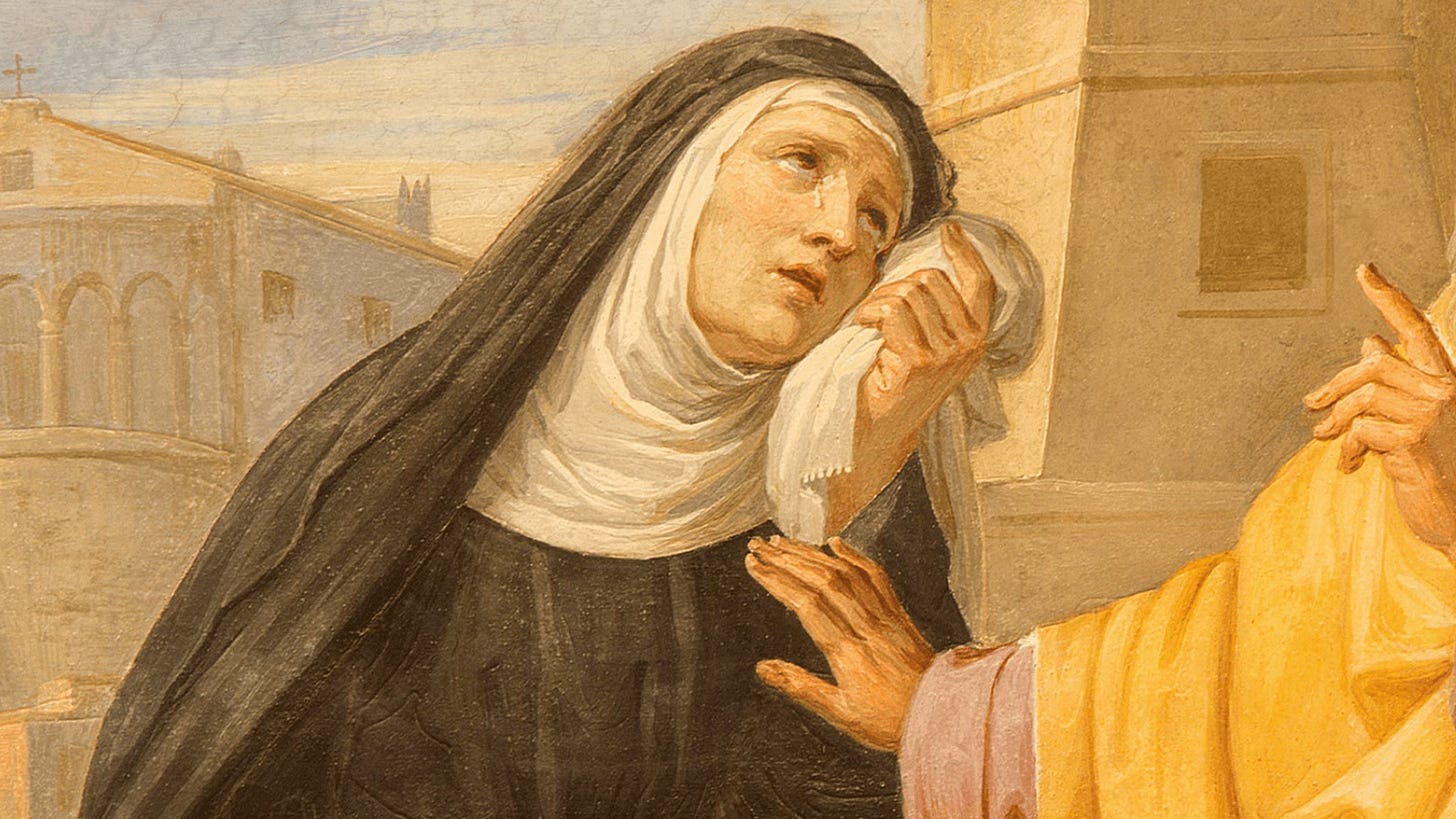Parsing Through the Dreams and Visions of St. Monica
Who is to say whether a dream comes from God or the imagination?
Do not quench the spirit. Do not despise prophetic utterances.
1 Thessalonians 5:19

🥱
What is it with dreams? Where do they come from? Do they matter? While baffling at times, they’re not an entirely inexplicable phenomenon. St. Monica sheds some light on this mysterious aspect of human experience.
This 4th Century saint took great stock in a vision she received in a dream, as her son, St. Augustine, relates in The Confessions. St. Monica yearns that her son join the Catholic Church, yet he persistently refuses to do so. His refusal fills her with anguish. At one point, St. Monica receives this dream of consolation:
She dreamed that she was standing on a wooden rule, and coming towards her in a halo of splendor she saw a young man who smiled at her in joy, although she herself was sad and quite consumed with grief. He asked her the reason for her sorrow and her daily tears, not because he did not know, but because he had something to tell her, for this is what happens in visions. When she replied that her tears were for the soul I had lost, he told her to take heart for, if she looked carefully, she would see that where she was, there also was I. And when she looked, she saw me standing beside her on the same rule.1
She relates the dream to St. Augustine and interprets its meaning. It is a divine assurance that his conversion would come to pass, which it did. Nine years later St. Augustine turns away from a life he characterizes as lustful and ambitious and dedicates himself to the service of God in the Church.
Yet St. Monica didn’t put stock in all her dreams. Before St. Augustine’s conversion, he is torn over the decision to marry, and asks his mother to pray for insight into his conundrum:
She daily beseeched you with heartfelt prayers to send her some revelation in a vision about my future marriage, but this you would not do. She had some vague and fanciful dreams, which were the result of her preoccupation with these thoughts, and when she told me about them, she treated them as of no importance and did not speak with the assurance that she always had when you sent her visions.2
When asked how to tell the difference between a “fanciful dream” and a divine vision, St. Monica had little to say:
By some sense, which she could not describe in words, she was able to distinguish between your revelations and her own natural dreams.3
🥱
I wonder how she might have described this “sense”, could she have provided words. These two accounts suggest that dreams do matter; at times they come from God. They further suggest a need to parse through dreams; to develop this “sense”, so to speak; as some dreams are simply fluff and signify little at all.
Has God ever spoken to you in a dream? Are there signs that reveal whether a dream is significant, or that it’s simply the processing of daily thoughts? Can you put into words what these signs are?
🥱
The Confessions by St. Augustine. Translated by R.S. Pine-Coffin. The Penguin Group, 1961: Page 68.
The Confessions: Page 130.
The Confessions: Page 130.

